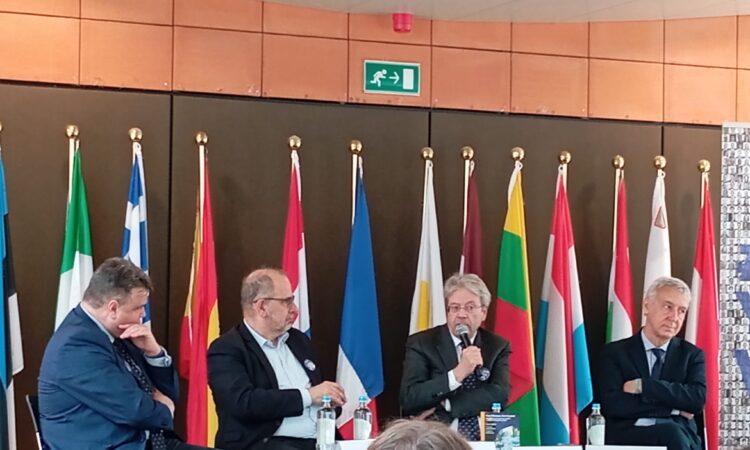
Brussels – No veers to the right, no EPP-ECR entente, no choices that go against the history and interest of the European Union. The strengthening of the EU must always be kept in the background and as a guiding light during the election campaign and, even more so, after the vote; otherwise, the “European project will have a problem,” that of holding. The Economy Commissioner Paolo Gentiloni rejects any suggestion of collaboration with the far right and less Euro-convinced forces, unlike his current Commission President, Ursula von der Leyen. The German, a Popular, has not ruled out hypothetical collaborations with the Conservatives (ECR), which the Italian college member indeed does.
“The next political cycle should be led by pro-European political forces,” said Gentiloni, speaking at the presentation of Luca Jahier’s book Making Europe, Making Peace, with the deputy editor of La Stampa, Marco Zatterin, author of the preface, as a moderator. An emphasis, that of the Economy Commissioner, which is a distancing from von der Leyen and a clear invitation to “think European.”
“The real opponents for Europe are those who say they would like a weaker Europe,” Gentiloni warns. A reference to sovereignists, those who want less Europe and more national parliaments, and those willing to give them credit. “We should protect our Union from those who want to destroy it, and strengthen it against those unwilling to do so.”
Gentiloni, having to think in terms of alliances, looks with more interest to the liberal wing than to the conservative one, precisely because of a vision in any case in favour of the integration project. “Emmanuel Macron’s speech addresses the risks and opportunities for the EU. It was—he stressed— a speech of hope and ambition. The question is whether we will be part of that ambition.” It will depend on the choices, which are also about narrative, which is too often wrong. “Sometimes I hear from my colleagues that we are in decline” as EU, laments the Economy Commissioner. In times of campaigning and less than pro-European temptations, “we should say how strong we are, how strong our unity was in responding to the war in Ukraine, how strong it was to issue common debt.”
English version by the Translation Service of Withub






